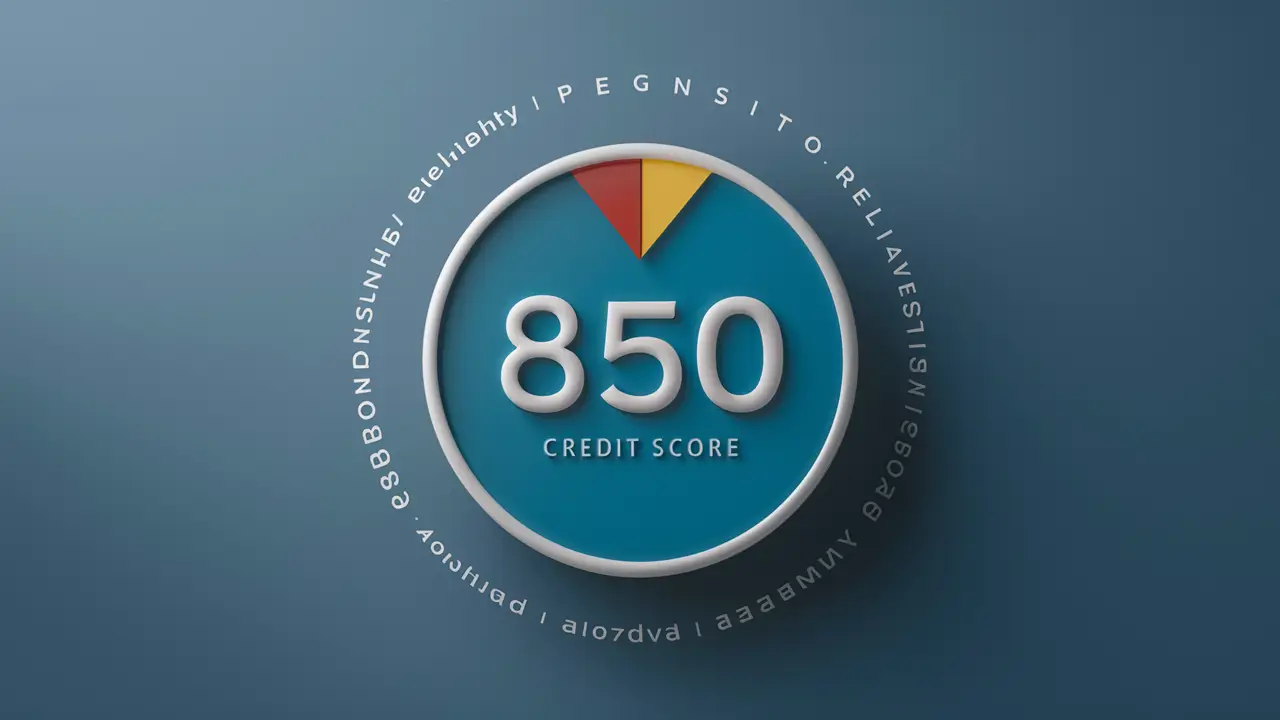Your credit score is a crucial three-digit number that significantly impacts your financial life. It influences your ability to get approved for loans, credit cards, mortgages, and even rental apartments. While a good credit score is generally considered desirable, achieving a *perfect* credit score opens doors to the best possible interest rates and financial opportunities. But what exactly constitutes a perfect credit score, and how can you achieve it? This comprehensive guide will delve into the intricacies of credit scores, explore the factors that contribute to them, and provide actionable steps to help you reach the coveted "perfect" status.
Understanding Credit Scores: The Basics
Before diving into the specifics of a perfect score, it's essential to grasp the fundamentals of credit scores. A credit score is a numerical representation of your creditworthiness, based on your credit history. It provides lenders with an assessment of the risk they take when lending you money.
Credit Scoring Models: FICO and VantageScore
Two primary credit scoring models dominate the landscape: FICO and VantageScore. While both aim to predict your credit risk, they utilize slightly different algorithms and data.
- FICO Score: Developed by the Fair Isaac Corporation, the FICO score is the most widely used credit scoring model by lenders. FICO scores range from 300 to 850.
- VantageScore: Created by the three major credit bureaus (Equifax, Experian, and TransUnion), VantageScore aims to provide a more consistent and accessible scoring model. VantageScore also uses a range of 300 to 850.
The Credit Score Range Breakdown
Understanding the different credit score ranges is crucial for assessing your current credit health and setting realistic goals.
- Exceptional (800-850): This is the highest credit score range. Individuals in this range are considered low-risk borrowers and qualify for the best interest rates and terms.
- Very Good (740-799): A very good credit score indicates a strong credit history and a low risk of default.
- Good (670-739): A good credit score is considered average. While you'll likely be approved for loans and credit cards, you might not receive the most favorable terms.
- Fair (580-669): A fair credit score suggests some credit challenges in the past. Securing credit might be more difficult and come with higher interest rates.
- Poor (300-579): A poor credit score indicates significant credit problems. Obtaining credit will be challenging and expensive. It's imperative to focus on credit repair in this range.
What is Considered a Perfect Credit Score?
A perfect credit score is the highest possible score within a specific scoring model. For both FICO and VantageScore, a perfect credit score is 850.
Reaching a perfect credit score is rare, but it's not impossible. It signifies an exceptional track record of responsible credit management and demonstrates a consistent ability to repay debts on time.
Factors Influencing Your Credit Score
Your credit score is not a static number; it's constantly evolving based on your credit behavior. Understanding the factors that contribute to your credit score empowers you to make informed decisions and improve your creditworthiness. The following factors, weighted differently by FICO and VantageScore, play a crucial role:
Payment History (35% of FICO Score)
Payment history is the single most important factor in determining your credit score. It reflects your ability to pay your bills on time, every time. Late payments, even by a few days, can negatively impact your score.
- Impact: Making consistent, on-time payments is the most effective way to build and maintain a good credit score.
- Tips: Set up automatic payments to avoid missing due dates. Review your credit report regularly to identify and address any errors related to payment history.
Amounts Owed (30% of FICO Score)
The amounts owed, also known as credit utilization, refers to the percentage of your available credit that you're using. Lenders prefer to see low credit utilization, typically below 30%. High credit utilization indicates that you might be overextended and struggling to manage your debt.
- Impact: Keeping your credit card balances low demonstrates responsible credit management.
- Tips: Pay down your credit card balances each month, even if it's just above the minimum payment. Avoid maxing out your credit cards. Consider requesting a credit limit increase to lower your credit utilization ratio (but be sure not to increase your spending!).
Length of Credit History (15% of FICO Score)
The length of your credit history reflects how long you've been using credit. A longer credit history generally indicates a more established track record and can positively impact your score. This factor takes into consideration the age of your oldest account, the age of your newest account, and the average age of all your accounts.
- Impact: Building a long and positive credit history takes time and consistent effort.
- Tips: Keep older credit card accounts open, even if you don't use them frequently (unless there are annual fees that outweigh the benefits). Avoid closing accounts unless absolutely necessary.
Credit Mix (10% of FICO Score)
Credit mix refers to the variety of credit accounts you have, such as credit cards, installment loans (e.g., auto loans, mortgages), and other types of credit. Having a healthy mix of different credit types can demonstrate your ability to manage various financial obligations.
- Impact: While not as influential as payment history or amounts owed, a diverse credit mix can contribute to a higher score.
- Tips: Don't open credit accounts solely to improve your credit mix. Focus on managing your existing credit responsibly. Having a mix of credit types naturally emerges over time as you take out loans for different purposes.
New Credit (10% of FICO Score)
New credit refers to recently opened credit accounts and credit inquiries. Applying for multiple credit accounts within a short period can lower your score, as it might indicate financial instability or a higher risk of default.
- Impact: Applying for too much credit too quickly can negatively impact your score.
- Tips: Avoid applying for multiple credit cards or loans at the same time. Be mindful of hard inquiries on your credit report. Soft inquiries (e.g., checking your own credit) do not affect your score.
Achieving a Perfect Credit Score: Strategies and Tips
Reaching a perfect credit score requires discipline, patience, and a consistent commitment to responsible credit management. While it may take time and effort, the benefits of an 850 credit score are substantial. Here are some proven strategies to help you on your journey:
- Pay All Bills on Time, Every Time: Set up automatic payments or reminders to ensure you never miss a due date. Even a single late payment can negatively impact your score.
- Keep Credit Utilization Low: Aim to use no more than 30% of your available credit on each credit card. Ideally, keep it below 10% for optimal results.
- Pay Down Debt Aggressively: Prioritize paying down high-interest debt, such as credit card balances. Consider using strategies like the debt snowball or debt avalanche to accelerate your debt repayment.
- Monitor Your Credit Report Regularly: Check your credit report from each of the three major credit bureaus (Equifax, Experian, and TransUnion) at least once a year. You can obtain a free copy of your credit report from AnnualCreditReport.com.
- Dispute Errors on Your Credit Report: If you find any inaccuracies on your credit report, dispute them with the credit bureau immediately. Provide supporting documentation to substantiate your claim.
- Avoid Opening Too Many New Credit Accounts: Opening multiple credit accounts in a short period can lower your score. Only apply for credit when you genuinely need it.
- Maintain a Mix of Credit Accounts: Having a variety of credit accounts, such as credit cards and installment loans, can demonstrate responsible credit management. However, don't open accounts solely to diversify your credit mix.
- Be Patient and Persistent: Building a perfect credit score takes time and consistent effort. Don't get discouraged if you don't see immediate results. Stay committed to responsible credit management, and you'll gradually improve your score.
- Consider Secured Credit Cards (If Necessary): If you have a limited or poor credit history, a secured credit card can be a valuable tool for building credit. Secured credit cards require a security deposit, which typically serves as your credit limit.
- Become an Authorized User: Ask a trusted friend or family member with a good credit history to add you as an authorized user on their credit card. Their positive payment history can help boost your credit score. Ensure they understand the importance of making timely payments.
The Benefits of a Perfect Credit Score
While striving for a perfect credit score requires dedication, the rewards are significant and far-reaching. An 850 credit score unlocks a world of financial advantages, including:
- Best Interest Rates: Qualify for the lowest interest rates on loans, mortgages, and credit cards, saving you thousands of dollars over the life of the loan.
- Greater Approval Odds: Increase your chances of being approved for credit cards, loans, and other financial products.
- Higher Credit Limits: Access higher credit limits on your credit cards, providing greater financial flexibility.
- Negotiating Power: Gain leverage when negotiating interest rates, fees, and other terms with lenders.
- Rental Opportunities: Improve your chances of being approved for rental apartments and homes, as landlords often use credit scores to assess applicants.
- Insurance Discounts: Some insurance companies offer discounts to individuals with excellent credit scores.
- Peace of Mind: Enjoy the peace of mind that comes with knowing you have exceptional financial standing.












